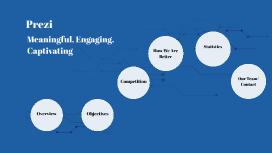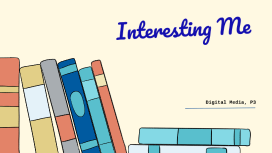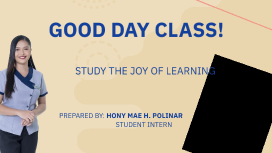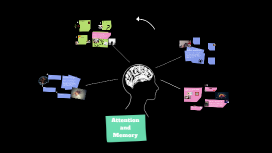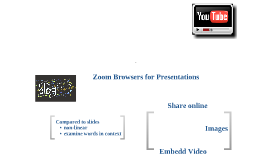Engaging Presentations
Transcript: Zoom out for more assets Asset library Analysis explanation Critical Question!!! B C What will life be without memories? and what can we do to improve our memory health wise? we have four main types of memory: The short-term memory, known as the working memory. It is active, temporary and fragile. It is the bridge between enconding and long-term memory. The long-term memory, known as the return to working memory. Memory are not retrieved in details. It is activily re-ordering of fragments. The declarative memory are those that can be experienced in our conscious awereness, such as a list of numbers. The non-declarative memory are thos that cannot be experinced in our conscious awereness, such as the motor skills necessary to ride a bike. We are not born to knowing everything we need to know about the world. medina 2014 pg. 128 A SO WHAT? So What? Memory provides a big survival advantge. We learn through experiences and teachings. Ou memory allows us to remember the encounters we've had with these experiences and the lessons learnt, for example, the ability to speak, ride a bike, play basket ball etc. This is an important concept to understand because in our modern culture we have a thousand distractions that can cause us to splitt our attention. If we are not careful we can start letting unimportant stimuli distract us from what is truly important and worthy of our attention. A Analysis Making a list of what we want to prioritise and getting rid of distractions is one way to help our brains focus. Using noise cancling headphones, going to libraries, and turning off notifications are all things people can utilize so that the brain does not have to try to multitask. B The Brain cannot Multitask While the brain can allow a person to walk and talk at the same time, it can not split its attention to two tasks at once, such as listing to a professor and doing other homework (Medina, 2008, p. 115). C Critical Question Would limiting unnecessary stimuli in our society today help people to feel like they do not have to juggle a hundred things at once? What are ways we could get rid of exstra stimuli? A So What? Without this ability we would have to force ourselves to memorize what is going on around us at all times, but automatic processing makes recalling details of a wedding, hike, or classroom much easier. Automatic Processing pg133 This form of memory takes place when we try to recall an experience. We automatically take in what happens around us during an event, making it easy for our brains to recall and process (Medina, 2008, p. 134). B A Analysis SO WHAT? We have a common impression that our brain is a lot like a recording device. to learn we push the 'record' button and to remeber we hit the 'play' button. WRONG!!! This ability is the opposite of effortful processing which reqires us to purposfully remember things such as a passcodes or phone numbers. We understand what is being taken in automatically and what needs more effort to be memorized then we can start to make descions based on these facts. For example, when going to an art museum you know you will remember the general beauty of the place, but decide to really study a certian painting you want to remember. We don't just press the "record". medina 2014 pg. 131 C Critical Question Is there a ways we can improve our automatic processing so that we can be even more accurate when recalling events? B Analysis Explanation Our brain is like a blender. As we learn, the information is chopped into pieces and splattered all over the insides of our mind. This happens immediately we look at a complex picture, for example, it extracts the diagonal lines from the vertical lines and stores them in seperate areas . same with color, if the picture is moving, the fact of its motion will be extracted and stored in a sepepate place than if the picture were static. This leads to encoding. To encode information means to convert data into code. our brain translate external source energy into electrical patterns the brain can understand. Encoding envolves all our senses and their processing center are scatttered throughout the brain. C Critical Question!!! What could we do better to develop our sense of encoding? Are there other ways to develop encoding in our brains? Attention and Memory







